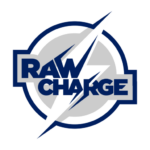We here at Raw Charge usually like to do something every summer that celebrates all of the hard work our contributors did over the last hockey season. This summer, we decided to do a Christmas in July Secret Santa drawing. Each contributor was given the name of another and was asked to find a piece from that person to highlight from the 2017-18 season.
I got Natalia, otherwise known as extragalactic, one of our amazing Russian translators.
It’s hard to describe how much value having two Russian translators on our site has brought. Natalia and Igor have spent hundreds of hours painstakingly transcribing articles and interviews out of Russia. Thanks to their work, Raw Charge has been able to bring both news and Russian interviews with players like Andrei Vasilevskiy, Nikita Kucherov, Mikhail Sergachev, Alex Volkov, Nikita Gusev, and Vladislav Namestnikov to our English-speaking readers. This has enhanced our content, and we’ve also been able to get know these players better as we peak at them through the lens of their home country.
I think one of the things that most impresses me about Natalia is the kind of articles she chooses to transcribe. Generally, we don’t find articles for her to translate for us (although that does happen). Natalia has a great eye for interesting and relevant interviews and news pieces, ones that give Tampa Bay Lightning and Syracuse Crunch fans valuable insight into the players involved.
Now, I’ve said that, but yet I’ve chosen not to highlight one of Natalia’s translations for the purposes of this article. Although we don’t ever see much of her in her translations, Natalia is a passionate and knowledgeable hockey fan in her own right. Our readers and our staff got to see that firsthand this past March when Natalia wrote a very personal piece for us on the Kontinental Hockey League.
At the time, Olympic fever had reached its pitch and Russia’s national hockey team had just won gold. There were a lot of opinions flying around social media about Russia’s program, but many of those opinions came from those in other countries besides Russia. Most of those were from North America. Natalia’s views on the subject as a Russian were absolutely invaluable, even if they were perhaps painful for her to discuss.
As Natalia expressed her opinions, I admired how she was able to explain the issues at hand succinctly, in a way that even outsiders could grasp:
These days, if there’s an emerging young talent in the KHL, it is natural to expect Moscow or Saint Petersburg to take action as soon as possible. As a result, instead of building up their skill while playing against each other, promising players struggle to secure a roster spot they would undeniably have had on any other team. The two organisations aren’t just concentrating talent—they’re pulling part of it out of the KHL and into the minors, because when you have 40 KHL-ready guys, you can’t keep them all.
There are already talks circulating around the league about completely removing the salary cap; indeed, when the poor teams can’t even dream of touching it and the rich teams have a “higher purpose” that can neatly cover up any questionable moves, what’s the point of a league?
This is clearly a complicated issue, one that NHL fans might have a difficult time grasping. There really isn’t a “poor” NHL team. The salary cap is what it is, and teams craft their rosters according to what their general managers feel is important. Olympic medals are certainly desirable, but North American hockey fans don’t see teams in Canada hogging Canadian players so that they can win medals, or American teams hogging American players for that same reason. It’s a much different way of structuring a program, one we are not used to. Explaining it all clearly was imperative to the heart of her point, and she did it well.
At the start of her piece, Natalia braced herself for accusations of a lack of patriotism. I, however, found her pride in her country – and concern for its national hockey program – extremely evident in the questions she asked as her article went on.
If it had been so important to create a base club for the national team and pause the KHL championship for so long to prepare for the Olympics, why were most of our lines, including OAR’s best offensive trio of Nikita Gusev, Kirill Kaprizov and Pavel Datsyuk, created and tested during the tournament? What was so great about Artyom Zub or Yegor Yakovlev that Nikita Tryamkin couldn’t have delivered? What happened to Vadim Shipachyov? Why did the team win by the skin of their teeth when the amount of resources put in and their mastery compared to the opponent (no offense, I love Team Germany’s narrative!) had suggested that they should have dominated from the first second to the very last?
Natalia’s writing was powerful, and I think it opened a lot of eyes on this side of the world. We were very lucky to have her expressing her thoughts on our site, and I’m so glad she’s a part of the work we do here!

